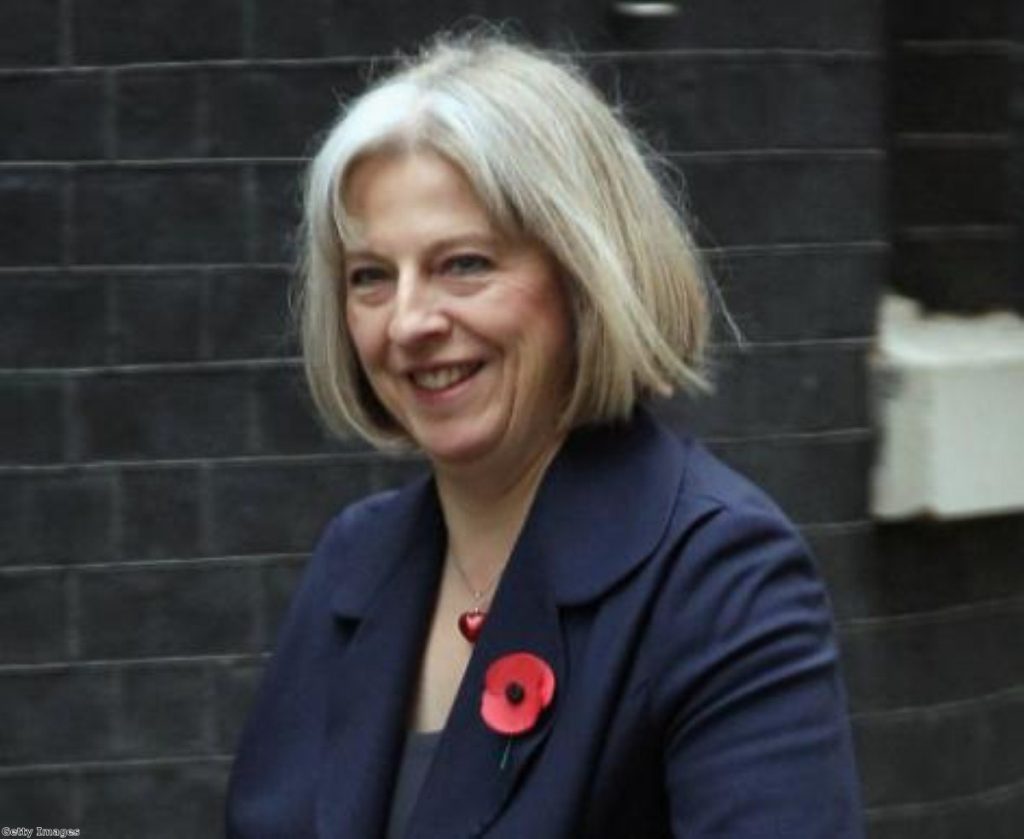‘I am no rogue officer’: Borders chief implies May lied to parliament
By Ian Dunt Follow @IanDunt
Theresa May's account of the border-checking controversy was dealt a devastating blow today, when the former head of the UK Border Force questioned her evidence to a Commons committee.
Brodie Clark, who was suspended in the wake of the row, told the home affairs committee he went no further in loosening passport controls than the home secretary demanded, despite her claims to the contrary.
The explosive witness testimony effectively accuses the home secretary of lying to parliament, given that her statements to the Commons and the committee said the terms of the pilot were expanded without her authorisation.


"I introduced no extensions to the home secretary's trial, nor did I alter it in any way whatsoever," he said.
"In the first month of the trial I reported to the home secretary as she required. Aside from teething issues the trial delivered into the border business exactly as she had wished.
"I have not wilfully or knowingly sanctioned an alteration to border checks that contravened existing Home Office policy. I have never sanctioned that the high quality checking arrangement at our border should be adjusted to speed flow," he added.
"I am no rogue officer. Nothing could be further from the truth."
The evidence session threatens to derail Ms May's efforts to survive the row, which has already dented her reputation for competence.
As the evidence session took place, immigration minister Damian Green was forced to answer an urgent question on the row in the Commons, prompting accusations of cowardice from the home secretary.
"She has refused to come to the House or do interviews for nearly two weeks," shadow home secretary Yvette Cooper said.
"The home secretary cannot keep running away. She must come to this House herself, now, and answer these vital questions."
Mr Clark stressed that two separate issues had been conflated in the debate over the border checks.
One concerned health and safety rules implemented in 2007, which allowed a suspension of fingerprint checks on non-Europeans. It was used 50 times in Heathrow alone this summer, notably when planes were being held in the air because of the length of queues at immigration.
A separate issue came in the form of a specific pilot project which entailed not checking children against a watch list and not opening the biometric chips on passports.
This trial, which was intended to make better use of staff resources given the strains on the service, threw up impressive results – improving performance on drug haulages and other projects.
"I firmly believe in that nature of controls for the UK. I firmly believe that creates a safer country," Mr Clark told MPs.
"I wanted that to be a success. I was determined it would be. I was meticulous in holding to the terms the home secretary put in place."
Far from contradicting Home Office authorisation, Mr Clark said he received instructions to extend the trial from September through November.
Ms May will be partially assisted by the fact that her account of events was corroborated by Rob Whiteman, the UK Border Agency chief executive and boss of Mr Clark, who said he went beyond ministerial authorisation.
There were dramatic scenes during his testimony, which took place directly after Mr Clark's, when he refused to pass on emails proving his arguments to the committee.
"Do you understand this is a committee of the House of Commons? Do as you're told," committee member David Winnick shouted.
Ms May's response to a written parliamentary question has revealed that the passport checks were reduced in 28 airports and ports, including Heathrow, Gatwick, Calais, Glasgow, Manchester and Cardiff.
Labour has piled on the accusations, saying leaked documents reveal private jet passengers were not seen by Border Agency staff at all.









